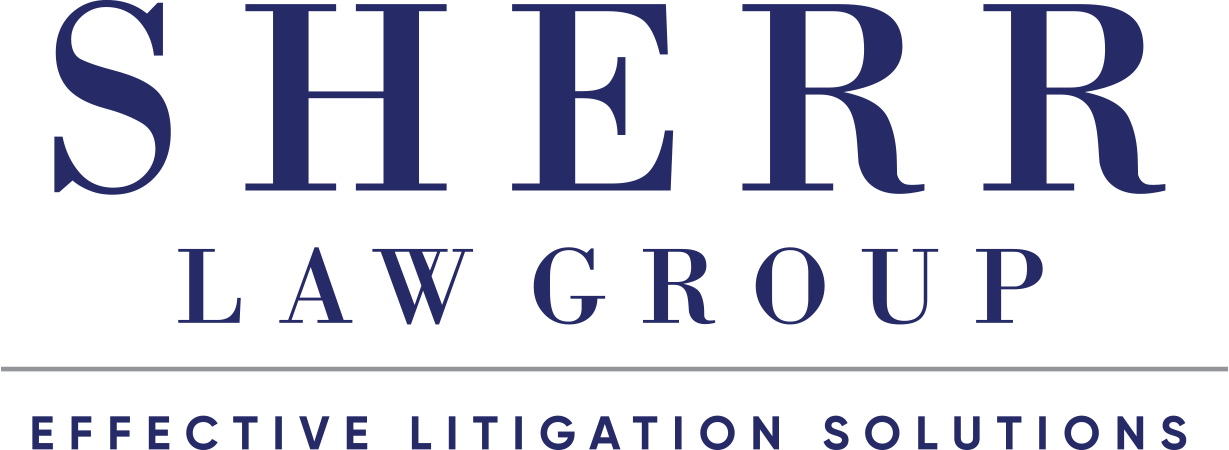In recent years, Kratom has gained popularity as a natural supplement, but its increasing usage brings forth a set of legal considerations, particularly in the realm of product liability. This blog aims to delve into the specifics of product liability in the Kratom industry, shedding light on the legal responsibilities of Kratom vendors and offering insights into how they can effectively mitigate legal risks.
What Makes Kratom Product Liability Unique?
When discussing Kratom product liability, it’s important to recognize how this category differs from traditional product claims. Unlike regulated pharmaceuticals, Kratom remains in a gray area between supplement and controlled substance, which complicates the legal landscape for vendors. Because of this, products liability lawyers handling Kratom cases must approach each matter with precision and creativity.
Defective product claims for Kratom often relate to issues like contamination, misleading marketing, or lack of adequate warnings. These are familiar concerns in broader products liability law, but the unpredictable regulation of Kratom adds another layer of risk. Vendors can’t simply rely on standard practices, they need tailored legal strategies from attorneys who understand the intricacies of both herbal supplements and product liability.
Working with a law firm experienced in products liability law services ensures your legal strategy reflects the unique challenges of operating in the Kratom space.
The Rise of Kratom and Legal Implications
Kratom, derived from the leaves of the Mitragyna speciosa tree, has found a niche in the wellness and alternative medicine markets. Known for its potential analgesic and mood-enhancing properties, Kratom has become a sought-after supplement. However, with the rise in popularity comes increased scrutiny, especially concerning product safety and liability. The legal status of Kratom varies across jurisdictions, adding complexity to its regulation. While some regions permit its sale and consumption, others have imposed restrictions or outright bans. In Pennsylvania, Kratom can be used, possessed, or purchased by anyone 18 or older. Navigating this legal landscape is crucial for Kratom vendors to ensure compliance with local laws and regulations.
Product Liability in the Kratom Industry
Product liability refers to the legal responsibility of a seller for any harm caused by their product. In the Kratom industry, this encompasses potential risks associated with the product, including contamination, mislabeling, or undisclosed additives. Vendors must recognize their duty to provide a safe and accurately labeled product to consumers. Proactive measures, such as thorough quality control, transparent documentation, and adherence to regulatory changes, are essential for Kratom vendors to navigate the legal landscape effectively and uphold consumer safety. Product liability claims may arise from various issues, such as alleged contamination with harmful substances, inadequate warnings or instructions, or adverse effects not disclosed on product labels. Vendors must be vigilant in addressing these concerns to mitigate the risk of legal action.
Legal Trends Shaping Kratom Product Liability
As the Kratom market expands, so too do lawsuits targeting vendors, particularly those not fully transparent about product risks. Legal precedents are still forming in this niche area, but early cases reveal a trend toward increased accountability — especially in matters involving minors, health complications, or unverified health claims.
Products liability law lawyers are beginning to see more litigation that resembles pharmaceutical or supplement-related cases. Plaintiffs often assert that vendors failed to provide adequate warnings or didn’t properly test their products. As more jurisdictions move to regulate Kratom directly, the standards for due diligence and disclosure will likely become more stringent.
For vendors, staying ahead of these legal trends isn’t optional, it’s a necessity. Engaging with products liability law services early can help prevent exposure to avoidable legal claims.
Legal Responsibilities of Kratom Vendors
Quality Control and Testing
To fulfill their legal responsibilities, Kratom vendors must implement rigorous quality control measures. Regular testing for contaminants, such as heavy metals, bacteria, and pesticides, ensures that the product meets safety standards. Vendors should collaborate with reputable laboratories to conduct these tests and provide transparent results to consumers.
Accurate Labeling
Accurate product labeling is paramount in the Kratom industry. Vendors must clearly disclose the contents of their products, including the Kratom strain, dosage recommendations, and any potential side effects. Mislabeling not only violates legal requirements but also jeopardizes consumer safety.
Providing Adequate Warnings
Kratom vendors should provide clear and comprehensive warnings about potential risks associated with Kratom consumption. This includes information about potential interactions with medications, potential side effects, and recommended dosages. Adequate warnings empower consumers to make informed decisions about product usage.
Monitoring and Adapting to Regulatory Changes
The legal landscape surrounding Kratom is dynamic, with regulations subject to change. Kratom vendors must stay informed about evolving regulatory frameworks in the regions where they operate. Adapting swiftly to any changes ensures ongoing compliance and minimizes legal risks.
Mitigating Legal Risks in the Kratom Industry
Thorough documentation is a key element in risk mitigation. Kratom vendors should maintain records of quality control tests, ingredient sourcing, and compliance with labeling requirements. In the event of a legal challenge, comprehensive documentation can serve as a strong defense. Product liability insurance provides financial protection in the event of legal claims. If possible, Kratom vendors should invest in robust insurance coverage tailored to their specific industry and product offerings. Adequate insurance can mitigate financial risks associated with legal challenges. However, because of the uncertainty surrounding Kratom’s legal status from region to region, as well as concerns over its safety, many insurance companies have shown an unwillingness to cover Kratom producers, retailers, and wholesalers. Because of this, seeking legal counsel with experience in product liability is crucial for Kratom vendors. Legal professionals can conduct compliance audits, ensuring that vendors adhere to applicable laws and regulations. Proactive legal guidance helps identify potential risks and implement strategies for risk mitigation. Educating consumers about Kratom and its potential risks is a proactive strategy for risk mitigation. Clear communication about proper usage, potential side effects, and the importance of consulting healthcare professionals can enhance consumer awareness and minimize the likelihood of legal claims.
Responding to Kratom Legal Challenges
Strengthening Your Legal Defense Before a Claim is Filed
One of the smartest moves a Kratom vendor can make is to build a defense strategy before a claim is ever filed. Many companies wait until they’re facing litigation to call in Philadelphia Products Liability Lawyers, but this reactive approach can leave gaps in compliance and documentation.
At Sherr Law Group, we advise Kratom businesses on preventative legal frameworks that reduce exposure from day one. That includes reviewing marketing materials, testing protocols, and supply chain transparency — all common flashpoints in defective product claims.
In some cases, simply updating your warning labels or disclosure statements can make a meaningful difference in how a court views your intent and due diligence. Legal readiness should be part of your overall operational plan, not just an emergency response tool.
Our team of products liability law lawyers understands the stakes, and the nuance, involved in selling Kratom legally. Whether you’re preparing to launch or scaling distribution, proactive legal guidance is your best line of defense.
Swift and Thorough Investigation
Facing a legal challenge involving Kratom demands a meticulous and expeditious response. Begin by assembling a dedicated team to spearhead the investigation process. This team should include legal experts, compliance officers, and individuals with in-depth knowledge of your Kratom product line and operations. Delve into the specifics of the legal challenge with a focus on understanding its nuances. Identify the circumstances, parties involved, and any potential breaches in compliance. Utilize an organized approach to gather all relevant documentation, including product testing results, manufacturing records, and communication logs. This comprehensive data collection forms the foundation for a robust response strategy. Simultaneously, engage with stakeholders within your organization to gain insights into the challenge. Collaborate with departments ranging from production and quality control to marketing and legal. This internal dialogue not only facilitates a holistic understanding of the situation but also contributes to a unified and well-coordinated response.
Kratom Legal Defenses
Collaboration with legal counsel with Kratom experience is paramount in crafting a defense that stands up to scrutiny. Establish a close working relationship with attorneys experienced in the Kratom industry and product liability. Engage in regular consultations to keep them abreast of your operations and ensure they comprehend the intricacies of your business model. Work hand-in-hand with legal professionals to construct a robust defense strategy. This involves a meticulous analysis of compliance measures, documentation practices, and adherence to industry best practices. Leverage the experience of your legal team to identify precedents, case law, and regulatory standards that can strengthen your defense. In the realm of legal defenses, transparency is key. Be forthright about your adherence to industry regulations, quality control measures, and any corrective actions already taken. Demonstrating a commitment to compliance and consumer safety can significantly bolster your defense. Craft a compelling narrative that not only addresses the legal challenge at hand but also underscores your dedication to ethical practices and continual improvement.
Corrective Action
Legal challenges often unveil opportunities for refinement within your Kratom business practices. Promptly initiate corrective action based on the findings of your investigation. This proactive approach not only addresses the immediate issue but also showcases your commitment to rectifying any shortcomings. Collaborate with your internal teams and legal counsel to develop a comprehensive corrective action plan. This plan should encompass changes in business practices, quality control protocols, and product labeling. Implementing these changes demonstrates a commitment to evolving with industry standards and mitigating future legal risks. Furthermore, engage in open communication with stakeholders, including consumers, distributors, and regulatory bodies. Keep them informed about the corrective measures undertaken, assuring them of your dedication to product safety and compliance. Transparency in your actions builds trust and positions your Kratom company as one that is responsive and accountable.
Partnering with a Law Firm That Knows Kratom
Because of Kratom’s evolving legal status and the serious nature of products liability law, choosing the right legal partner is critical. Not all products liability lawyers are familiar with the specific challenges this product category presents. From FDA advisories to state-level bans and consumer safety campaigns, your legal counsel needs to have their finger on the pulse of every relevant development.
Sherr Law Group provides products liability law services tailored specifically for Kratom producers, wholesalers, and retailers. We don’t just react to lawsuits, we help you prevent them. That includes strategic compliance reviews, crisis planning and management, insurance consultation, and guidance on managing defective product claims when they do arise.
Our approach is rooted in collaboration. We get to know your business, your supply chain, and your values so we can build a defense strategy that reflects your brand’s commitment to consumer safety. When your business is on the line, trust a legal partner that understands how high the stakes really are.
Work with Our Kratom Product Liability Attorneys
In the rapidly growing Kratom industry, understanding product liability is essential for vendors to navigate the legal landscape effectively. How Kratom vendors respond to legal challenges can significantly impact the outcome. By staying proactive, understanding the legal landscape, and implementing robust compliance measures, vendors can position themselves to navigate legal challenges effectively. Building a strong partnership with legal professionals, investing in continuous improvement, and maintaining transparency with consumers are essential components of a successful strategy. When navigating the complexities of legal challenges in the dynamic Kratom industry, partnering with Sherr Law Group is a strategy for success. With a wealth of experience in product liability defense and a profound understanding of the intricacies specific to the Kratom market, Sherr Law Group is a steadfast ally for vendors facing legal challenges. Our commitment to proactive investigation, collaboration on robust legal defenses, and guidance on strategic corrective actions positions us as industry leaders. Elevate your legal strategy and safeguard your business with Sherr Law Group – contact us today.


